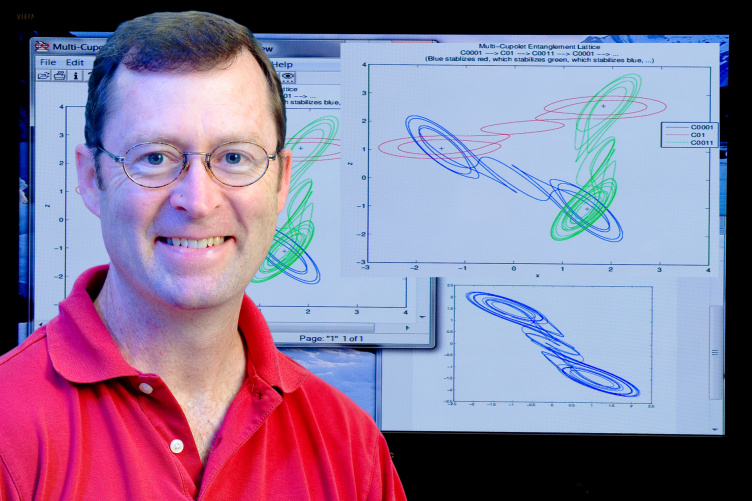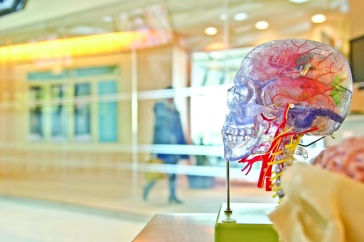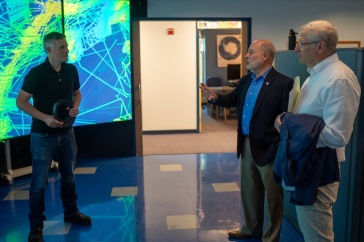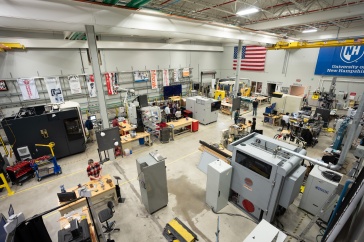
UNH math professor Kevin Short
Academic research leading to innovation with tangible health, economic or other quality of life benefits is seen as an ideal model for the College of Engineering and Physical Sciences.
Within the college there may be no better pioneer of that model than mathematics professor Kevin Short, who was recognized for his innovative spirit during the 2014 Fellows of the National Academy of Inventors (NAI) induction ceremony. The ceremony was held on the campus of California Institute of Technology in Pasadena, March 19-20.
"We are delighted to see Kevin receive recognition for the innovative work he has done at UNH," said Sam Mukasa, dean of the College of Engineering and Physical Sciences. "Kevin is one of the early practitioners in our College of the model that combines scholarship with developing a start-up company or partnering with industry to conduct research and development."
The NAI were nominated for outstanding contributions to innovation in areas such as patents and licensing, innovative discovery and technology, significant impact on society, and support and enhancement of innovation. Short was nominated by UNH for his innovative record that includes nine issued U.S patents and additional patents pending.
Short has built a record as an inventor widely recognized by the audio and music industry. He won a Grammy Award in 2010 for his role as a mastering engineer in the restoration of a 1949 wire recording of a live Woody Guthrie concert – the historical album category winner. During his 21 years at UNH, Short has used mathematics to improve hearing aids, restore audio recordings, and invent the first music downloads to phones.
Short said the recognition of fellows by the NAI highlights the importance of research done in academia and the positive effect it can have on society at large. During the conference, Short was impressed by work of his colleagues and how their efforts led to tangible benefits to society.
"Some of my colleagues' research leads to advances in medicine that will save lives," he said.
Short also spoke to the challenges that inventors in academia face, including the need to partner with investors and industry while also ensuring the needs of their students are met. Though opportunities exist for Short outside of academia, he plans to remain at UNH for the foreseeable future due to his love for UNH and its students.
Mukasa added that Short's model of research and teaching will remain a focus for CEPS.
"We have found that this approach is going to be increasingly vital for funding some of our research and for providing experiential learning opportunities for our students," said Mukasa.
The National Academy of Inventors is a 501(c)(3) non-profit member organization composed of U.S. and international universities, and governmental and non-profit research institutions, with over 3,000 individual inventor members and Fellows spanning more than 200 institutions, and growing rapidly. It was founded in 2010 to recognize and encourage inventors with patents issued from the U.S. Patent and Trademark Office, enhance the visibility of academic technology and innovation, encourage the disclosure of intellectual property, educate and mentor innovative students, and translate the inventions of its members to benefit society. The NAI edits the multidisciplinary journal, Technology and Innovation, published by Cognizant Communication Corporation (NY).
Want to Learn More?
Check out the organization's website, www.academyofinventors.org
-
Written By:
Brooks Payette | College of Engineering and Physical Sciences

















































